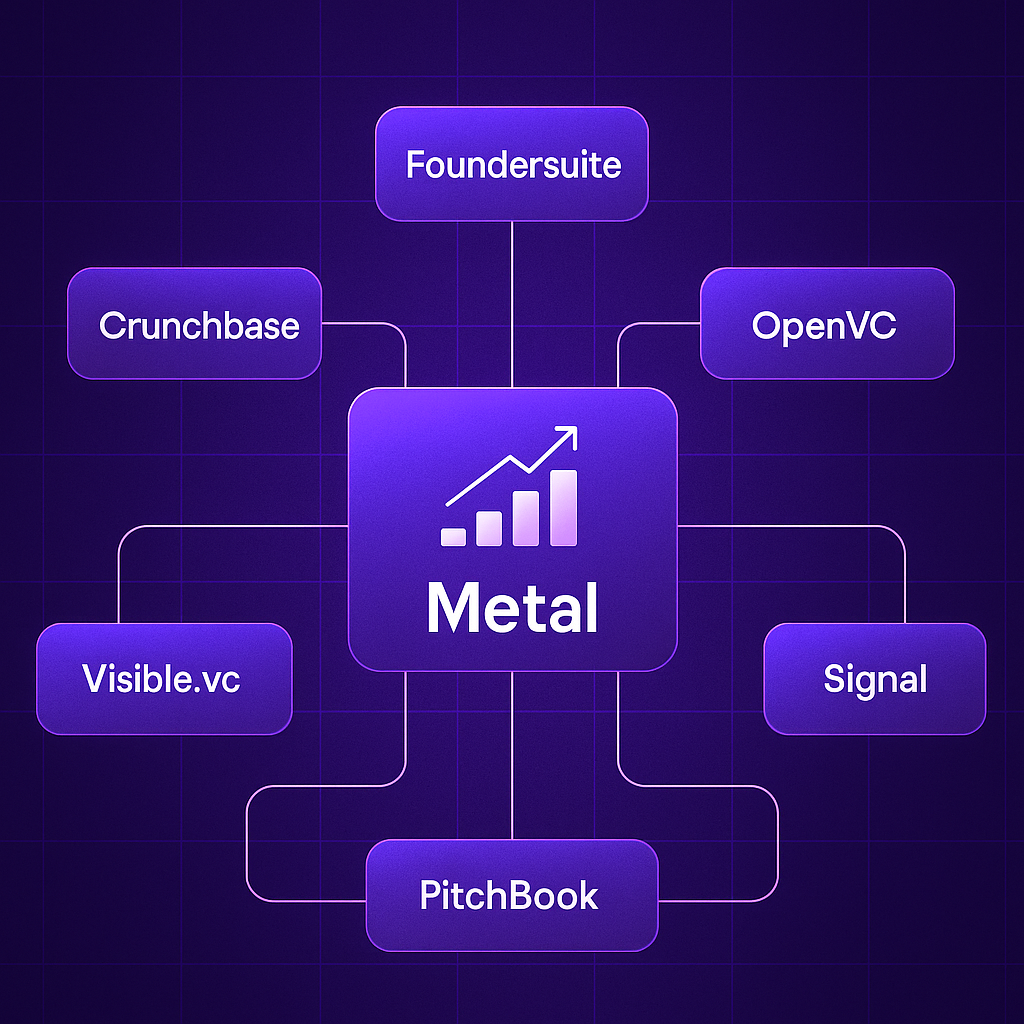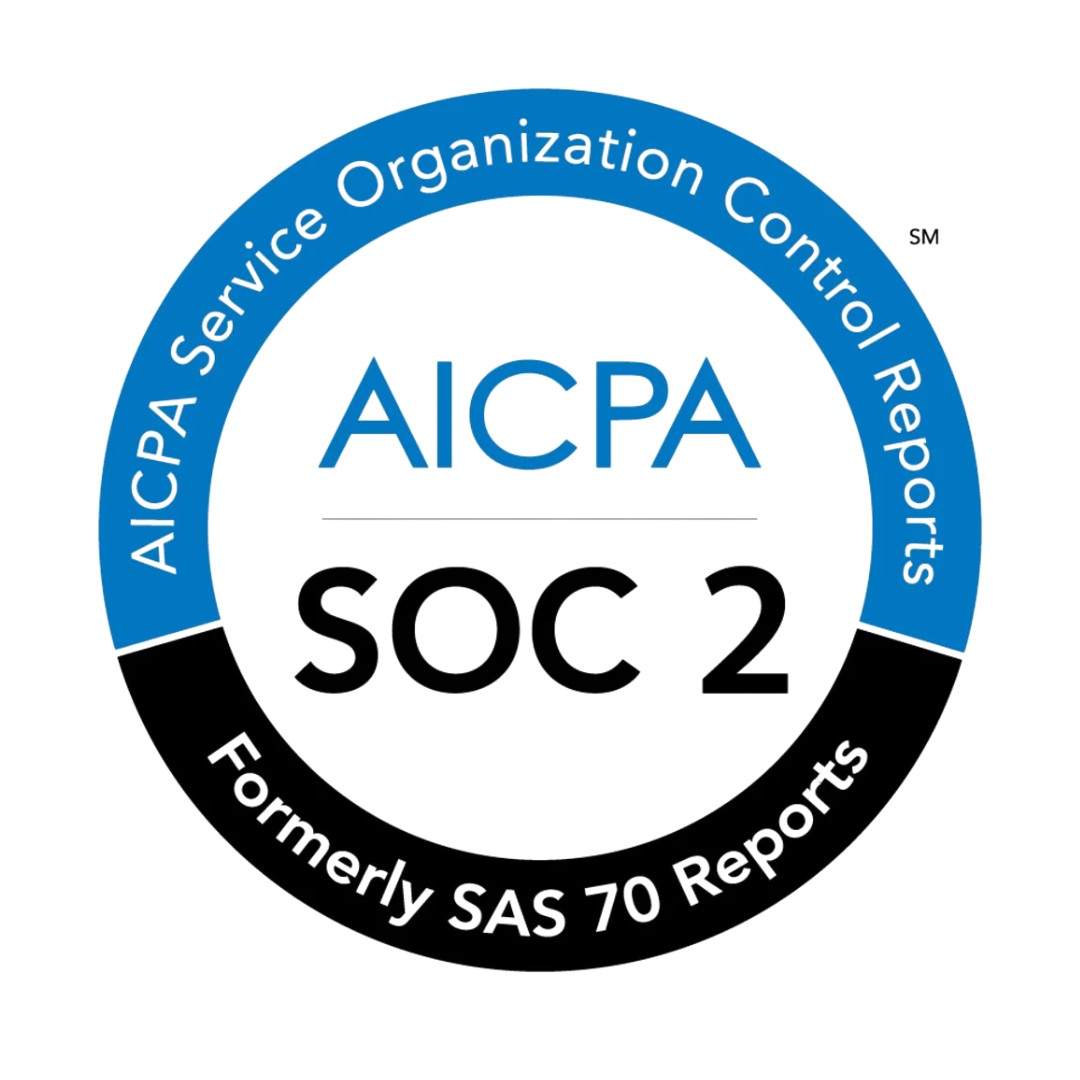Securing funding remains one of the most vital yet challenging phases of building a startup. In 2025, raising capital often requires precision targeting, polished investor outreach, and seamless cap table management. With so many platforms available, choosing the right one can make a major difference in speed, efficiency, and success.
This guide walks you through the best fundraising tools for startup founders in 2025, helping you pick the platform that fits your stage and strategy. We cover tools that excel at investor discovery, CRM workflows, relationship intelligence, cap table admin, and fundraising insight.
What makes the best fundraising tool?
In 2025, choosing the best fundraising tool means selecting a platform that aligns with your online fundraising goals, enhances your fundraising efforts, and supports your long-term fundraising campaign strategy. These are the key criteria that matter most:
1. Investor discovery and targeting capabilities
Top-tier fundraising platforms offer advanced targeting filters, letting you hone in by sector, stage, geography, check size, and investment thesis. Tools that combine AI-powered matchmaking with firm data help maximize your fundraising potential by connecting you with the most relevant investors at the right time.
2. Outreach and CRM workflows
Effective fundraising software tools provide built-in pipelines, reminder automation, email tracking, and performance dashboards—all optimized for capital raising rather than general-purpose CRM use. These features help streamline your fundraising efforts, turning contact management into actionable fundraising outcomes.
3. Warm introduction intelligence
The best peer-to-peer fundraising and peer fundraising networks surface real intro pathways from your LinkedIn or Gmail. Leveraging your existing network via virtual fundraising channels improves connection rates and reduces cold outreach fatigue—creating more meaningful investor relationships.
4. Data reliability and insight
Fundraising software solutions that update investor activity, stage specialization, and launch AI-driven signals give you strategic timing insights—allowing you to align outreach when investors are most active and flush with capital.
5. Ease of use and adoption
Buying fundraising software makes sense when the interface is intuitive and team-friendly. The best tools reduce friction—enabling you to hit your fundraising goals faster without complex onboarding or extensive training.
6. Integration, security, and scalability
Leading digital fundraising platforms offer SOC 2 or GDPR-compliant integrations with email, data rooms, finance tools, and marketing systems. As your startup grows, the software should scale through pre‑seed, seed, and Series A without disrupting your fundraising workflow.
7. Transparent pricing and startup-friendly terms
Ideal online fundraising solutions include free tiers or trials, predictable subscription costs, and minimal hidden fees. Whether you're focused on personal fundraising pages or scaling broader rounds, transparency supports consistency and trust in fundraising software solutions.
List of tools at a glance
Tool Reviews
Metal
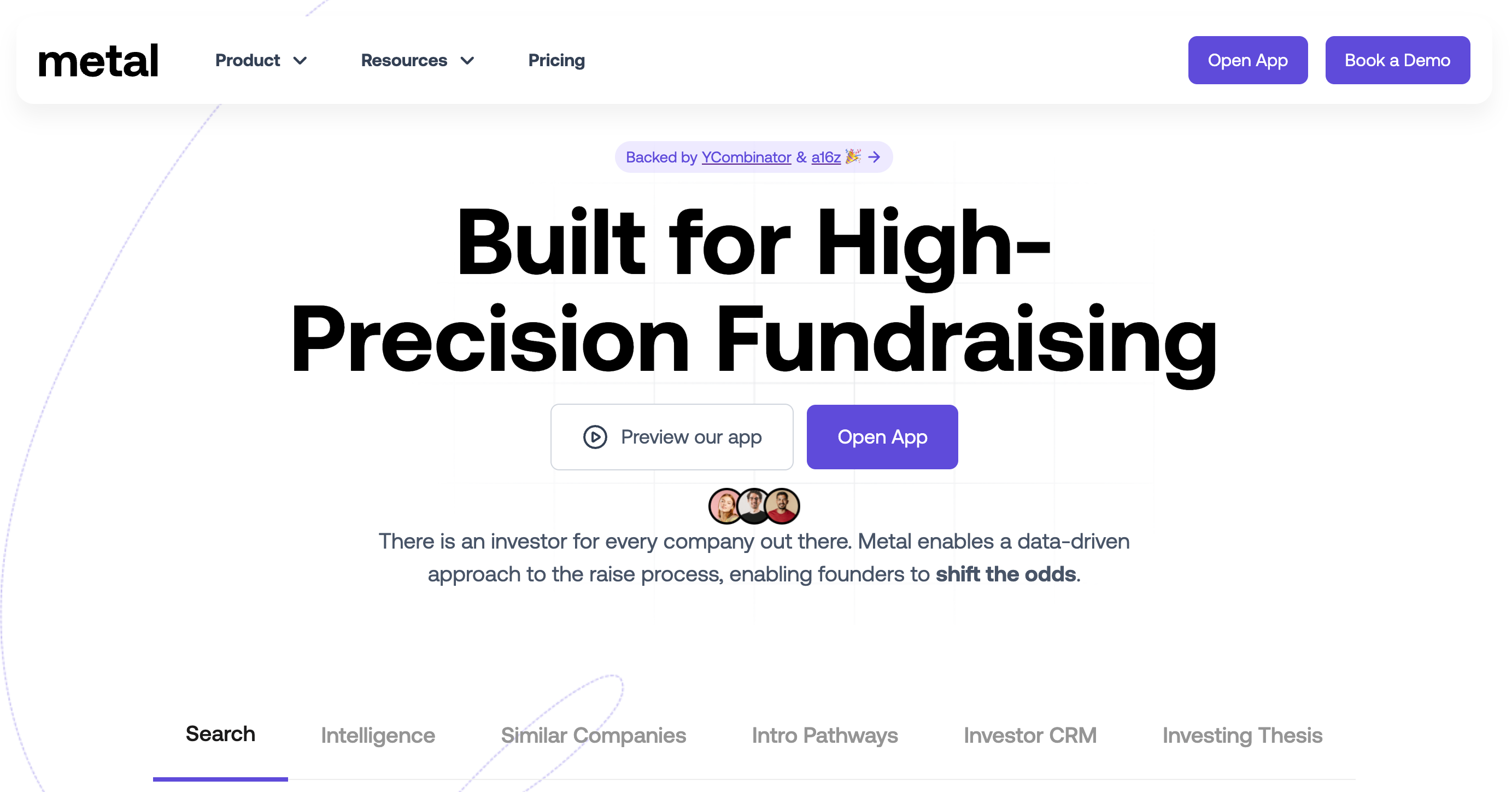
Best for: Founders wanting precision led targeting and intro-pathway for warm introductions
Pros
- 20+ granular filters to identify the most aligned investors by stage, sector, activity, geography
- Intro-pathway mapping using Gmail and LinkedIn to find warm connections
- Built-in fundraising CRM that supports custom columns and live guidance
Cons
- Paid subscription required post-trial
Metal functions as a fundraising operating system: a dealflow and CRM hub optimized for strategic, intel-driven workflows. Founders can compile target lists of investors, and map introductions to warm leads—all from the same interface. It's particularly powerful for teams with some traction who want to invest in structure and precision.
Pricing: Begins with a trial (extendable via onboarding), then converts into a paid plan.
OpenVC
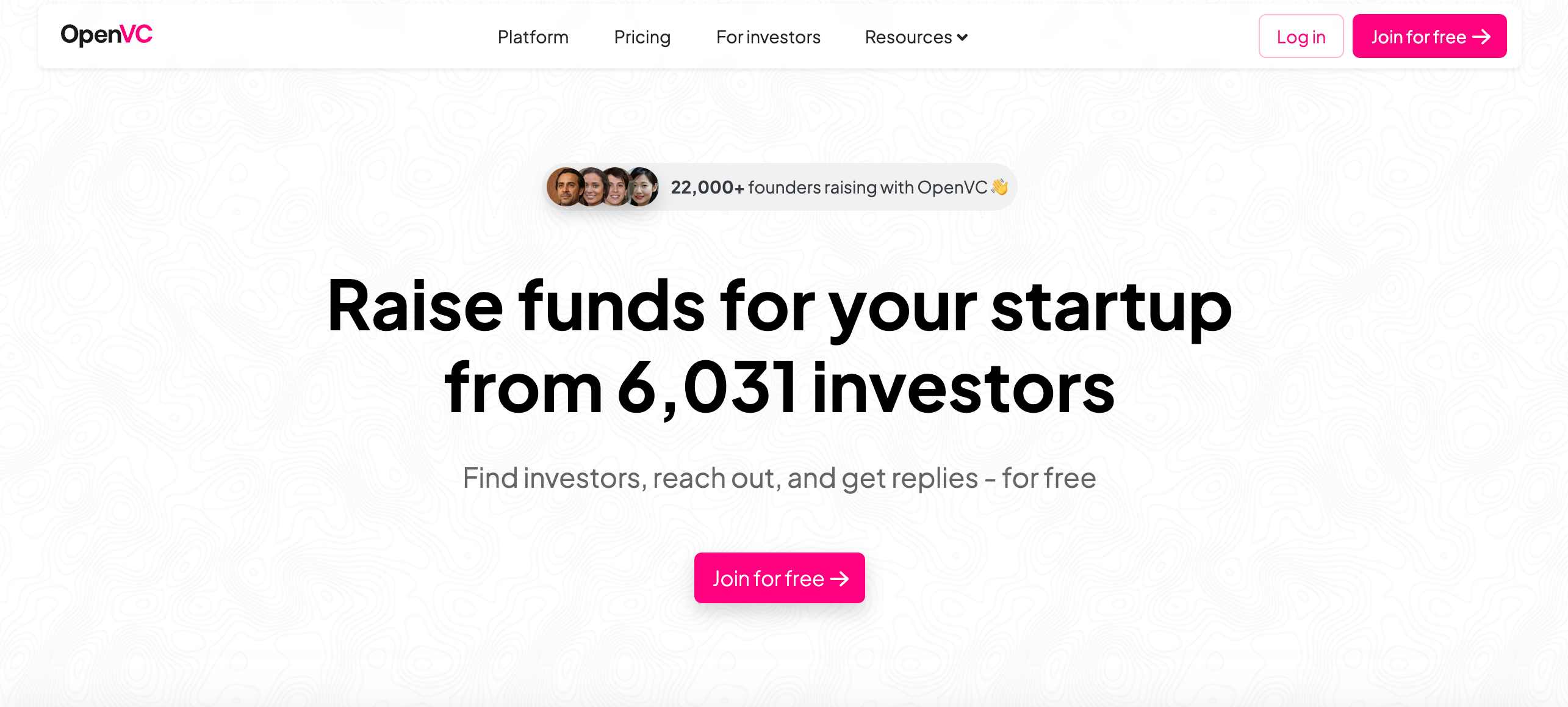
Best for: Bootstrapters and early-stage founders seeking investor access without cost
Pros
- Free access to 5,000‑6,000 early-stage investors, including angels, VCs, accelerators, and family offices
- Built-in deck submission, tracking, warm intro tools, and educational playbooks
- No success fees or compliance commissions platform stays free forever
- Praised for user-friendly interface and transparent process guidance
Cons
- Outreach to some investors limited many still require warm intros
- CRM is basic compared to paid tools like Metal or Foundersuite
OpenVC democratizes fundraising access by offering a free, searchable investor database, CRM capabilities, and pitch deck analytics all backed by playbooks and support. It's ideal for pre-seed teams building momentum in early fundraise stages. And because it's commission-free, founders retain control and transparency.
Pricing: Always free for core tools; optional premium features available.
Visible.vc
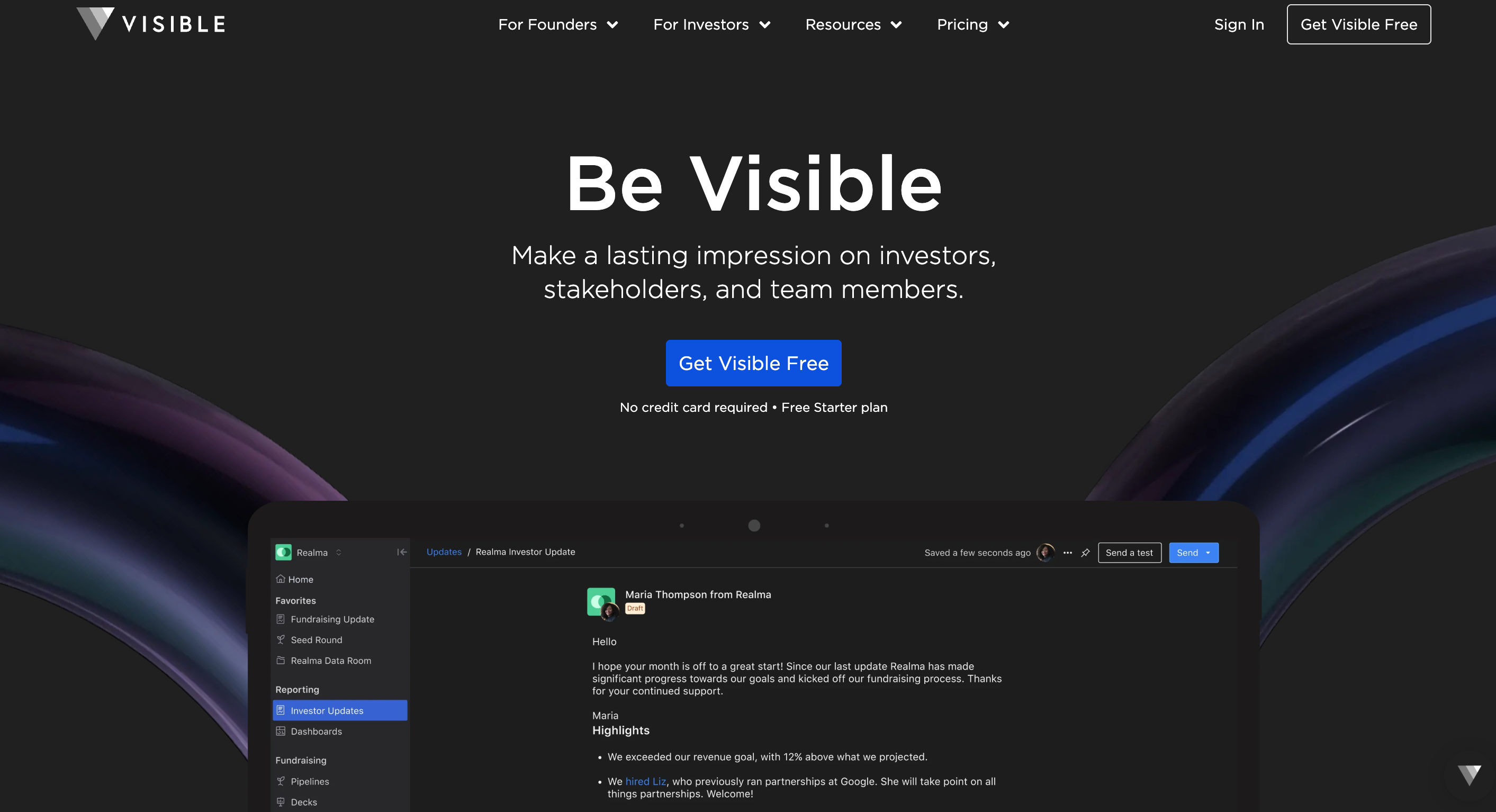
Best for: Maintaining polished, ongoing investor communication and updates
Pros
- Tools for branded investor updates, dashboards, data rooms, and fundraising pipelines
- SOC 2 compliance and secure communication channels for confidential materials
- Enables consistent reporting cadence and transparency for investors
Cons
- Not optimized for investor discovery or outreach
- No intro-pathway intelligence—assumes you already have contacts
Visible.vc is built for trust: a communications layer rather than a discovery engine. It enables founders to host pitch decks, share performance updates, and maintain touchpoints with investors well beyond the close. Especially useful for Series A+ founders managing board visibility.
Pricing: Subscription basis; tiered by features and team size.
Foundersuite
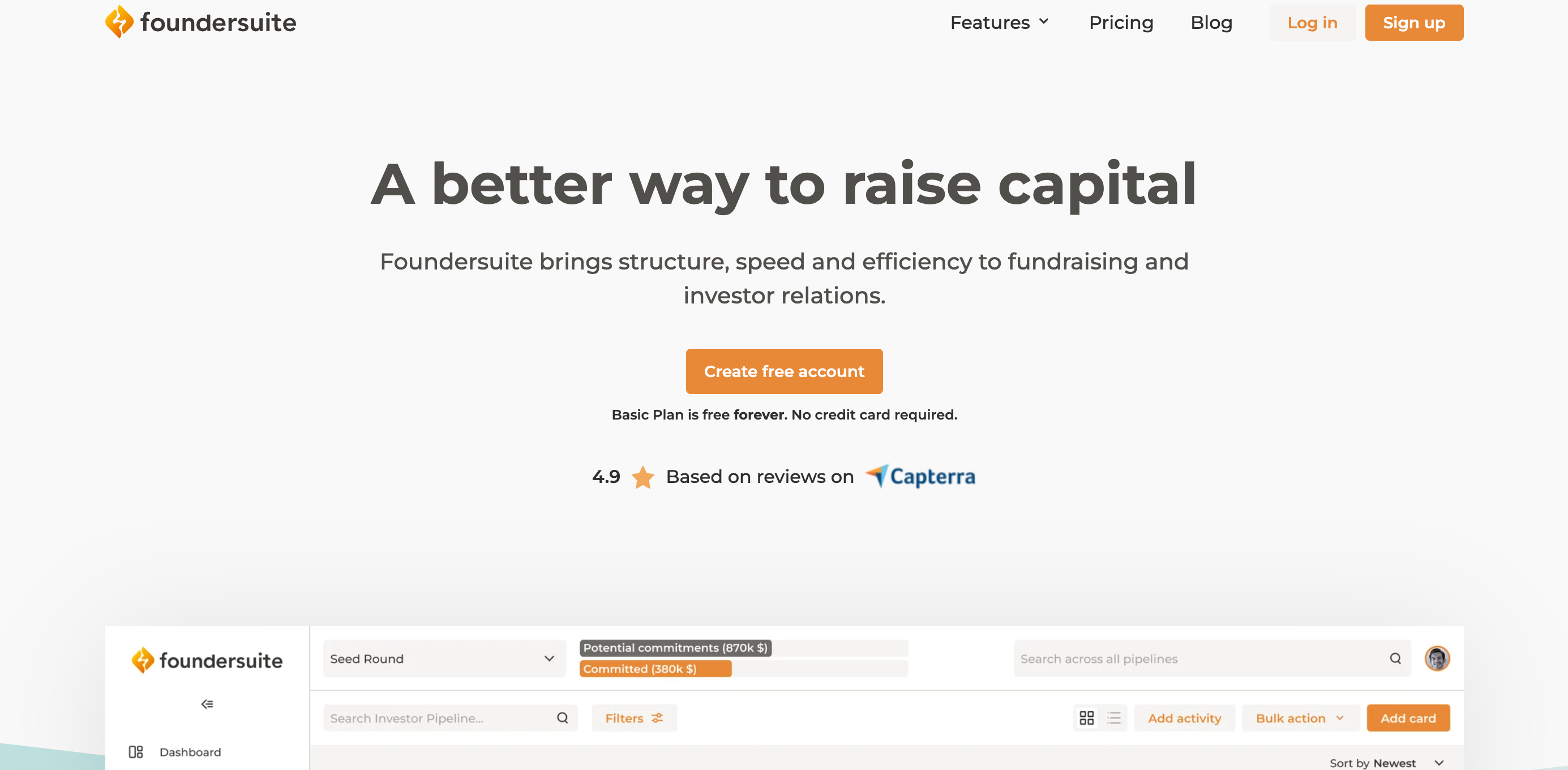
Best for: Coordinated outreach campaigns with templates, investor pipeline tracking, and CRM tools
Pros
- Investor database of over 216,000 profiles matched with CRM workflows designed for fundraising
- Email tools for pitching, reminders, follow-up automation, and engagement tracking
- Trusted by thousands of startups collectively raising billions via the platform
Cons
- Sourcing high‑quality investor lists still required discovery often needs other tools
Foundersuite is the “campaign manager” of fundraising. Its large investor directory pairs neatly with automated outreach workflows. For founders managing outreach at scale or coordinating multiple rounds and co-founders—it offers clarity and structure.
Pricing: Free tier available; paid plans start around $69/month.
Crunchbase
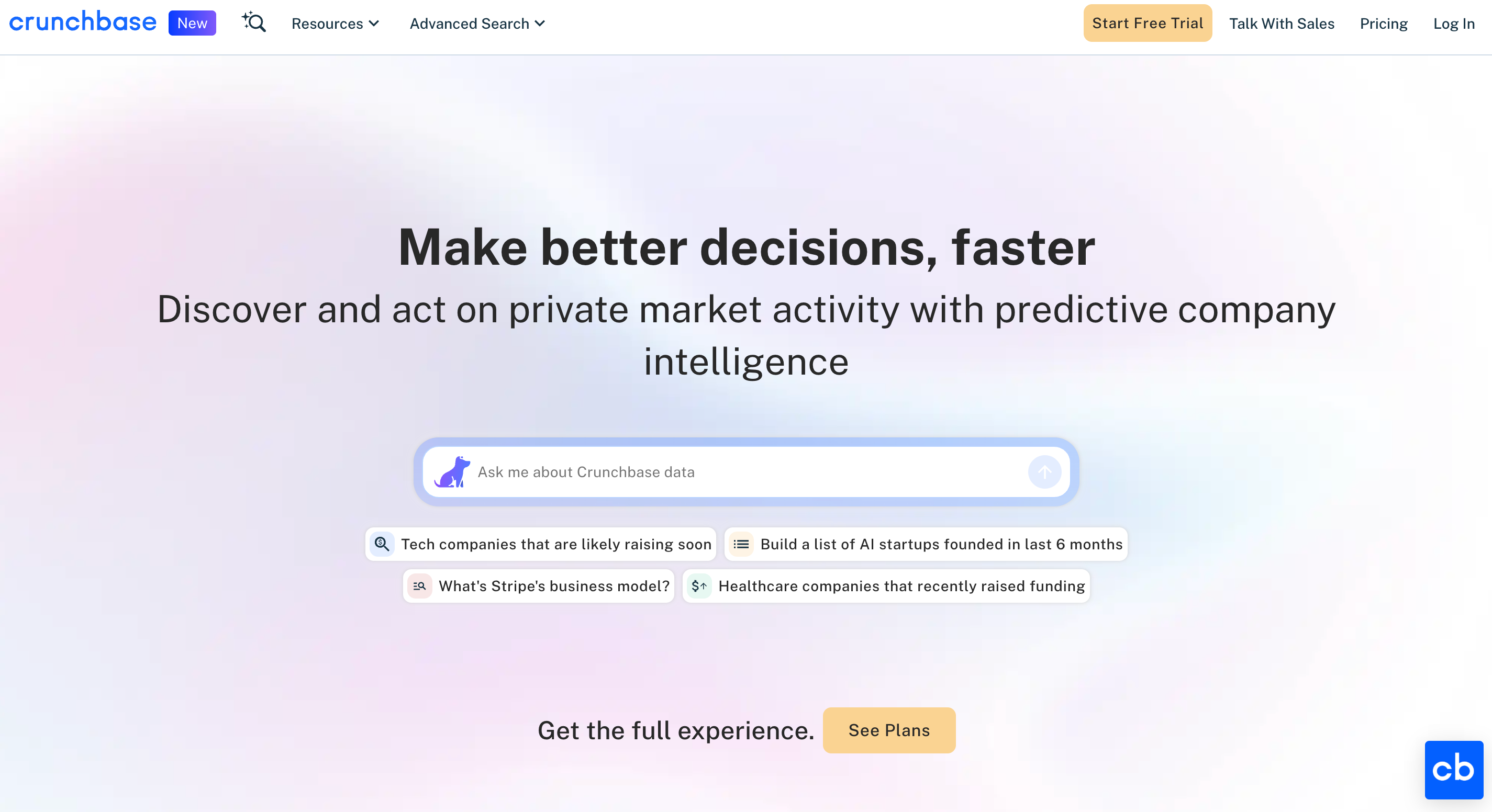
Best for: Researching investors, understanding venture activity, and AI forecasting fundraising readiness
Pros
- Massive database of companies, funding histories, investors, and news events
- “Scout” AI tool predicts funding events, acquisitions, or IPO potential with ~95% accuracy
- Supports filtering by geo, recency, investment thesis, and sector trends
Cons
- Data may lag in niche regional markets
- No CRM or intro-pathway intelligence still requires outreach tools
Crunchbase remains one of the most versatile research tools, helping founders analyze investor activity, market trends, and funding signals. Its AI forecasting engine adds strategic timing insight. It's a strong complement to workflow tools like Metal or Foundersuite for research-led fundraising strategy.
Pricing: Free version available; Pro and Enterprise tiers available starting from $79
Signal by NFX
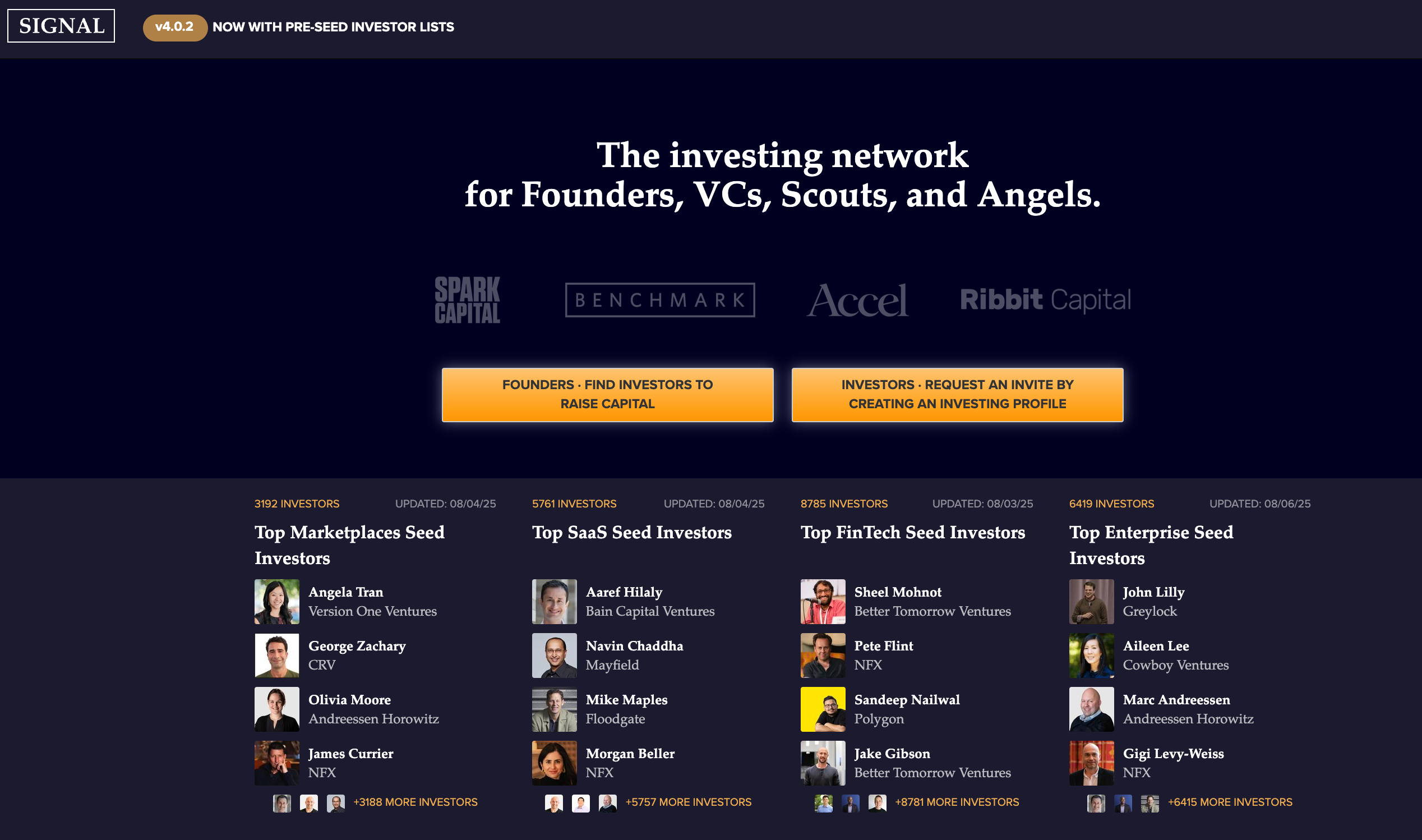
Best for: Founders looking to uncover warm intro pathways through their existing network
Pros
- Reveals warm intro paths via Gmail, mapping VC relationships based on metadata—great for founders who already have connections but need help surfacing them efficiently (Signal is a free tool by NFX)
- Provides searchable VC lists segmented by stage, sector, and deal preferences—used by VCs and top founders in Silicon Valley (Signal – The Fundraising CRM)
- Completely free, with no subscription fees—designed to make the VC network visible and actionable for founders (NFX product wiki)
Cons
- Not a full CRM—limited functionality for managing ongoing outreach or campaign sequences
- Coverage of VC-intent signals depends on profile completeness and user participation
Signal acts as a network overlay tool, making invisible founder‑VC connections visible. By connecting your Gmail and growing your network inside Signal, you uncover intro pathways and target investment lists aligned with your stage and thesis. It positions itself as a lightweight intelligence layer before outreach, not a full fundraising campaign manager.
Pricing: Free for all users with optional opt-in network features.
PitchBook
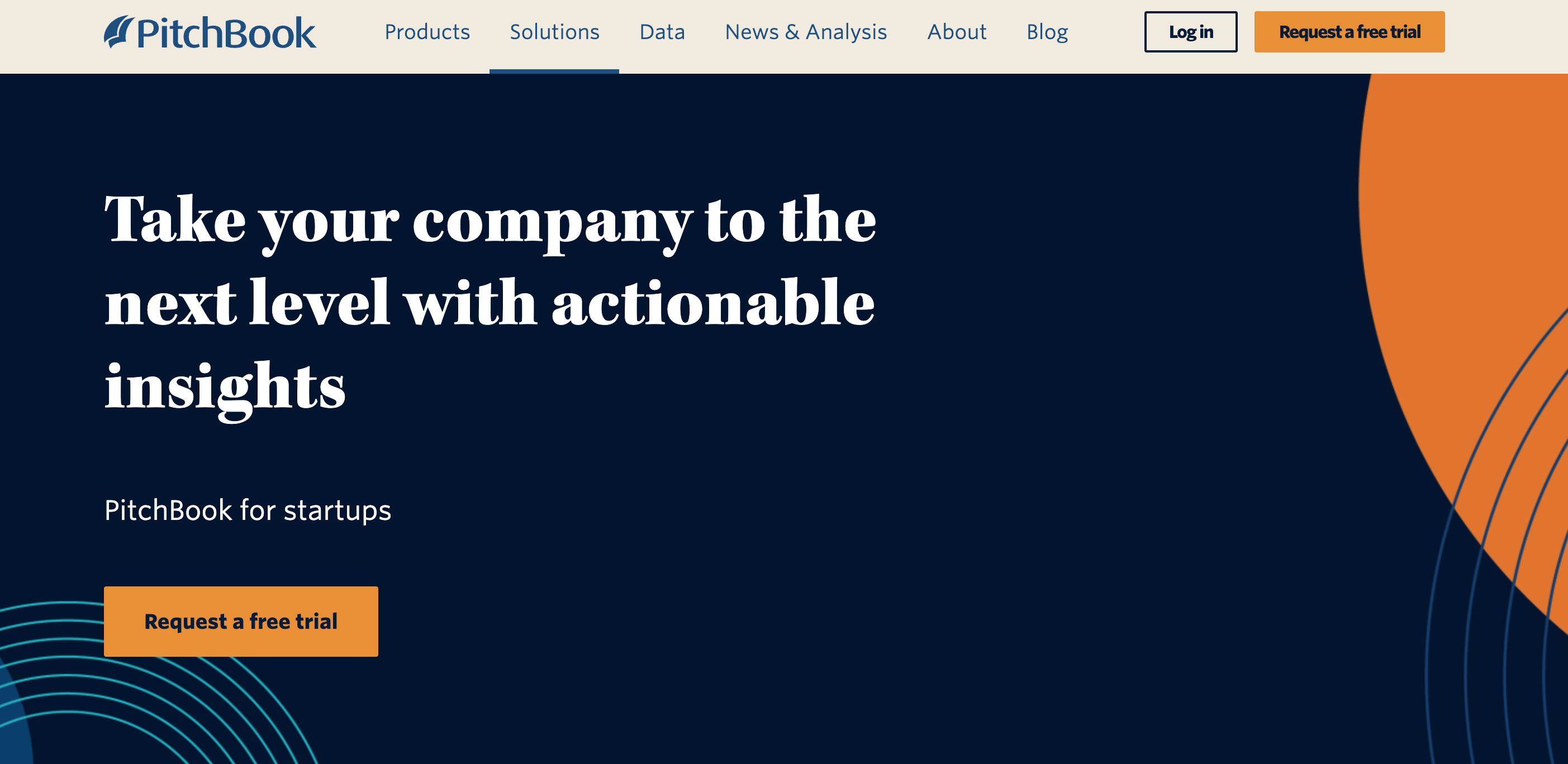
Best for: Founders and fundraising teams seeking in-depth market intelligence and investor profiling
Pros
- Comprehensive private market data covering VC, PE, M&A with deal terms, valuations, and exit details
- Enables investor & company searches, peer group benchmarking, fund analysis, and LP mandate insights for precise targeting
- Built-in analytics tools for modeling investor preferences, building pitch strategy, and generating visual reports
Cons
- Extremely expensive (~$18K+/year)—often out of reach for early-stage founders
- No built-in outreach or pipeline management—requires pairing with external CRM tools
PitchBook is a premium research platform used by institutional teams to benchmark performance, map LP mandates, and build high-fidelity investor lists. While less focused on execution, it’s unmatched in institutional-level insights and deal analytics—ideal when combined with platforms like Metal or Foundersuite.
Pricing: Enterprise-grade subscriptions (typically $18K to $70K/year depending on scale and add-ons).
Frequently Asked Questions
Q: Can I use OpenVC and Metal at the same time?
A: Yes. OpenVC offers a free database and CRM, while Metal provides advanced filter-based targeting and intro-pathway intelligence. Many founders start with OpenVC and layer in Metal as they scale.
Q: Which tool best surfaces warm intro signals?
A: Metal automatically maps Gmail and LinkedIn connections to show feasible warm intro paths. Metal also leverage your existing investors to create introductions. OpenVC also offers an intro finder feature, but with less granularity.
Q: Are these platforms effective for international founders?
A: Yes. OpenVC covers 5,000–6,000 global investors. Metal and Crunchbase offer global coverage, though coverage gaps exist in less common markets.
Q: Do I still need Carta if I’ve used AngelList?
A: Yes—Carta handles equity modeling and governance beyond AngelList's transaction execution. It's helpful for longer-term cap table clarity and stakeholder transparency.
Q: Which platform speeds up fundraising the most?
A: Founders using data-driven tools like Metal typically report 25% faster cycles and higher investor engagement vs. manual outreach.


